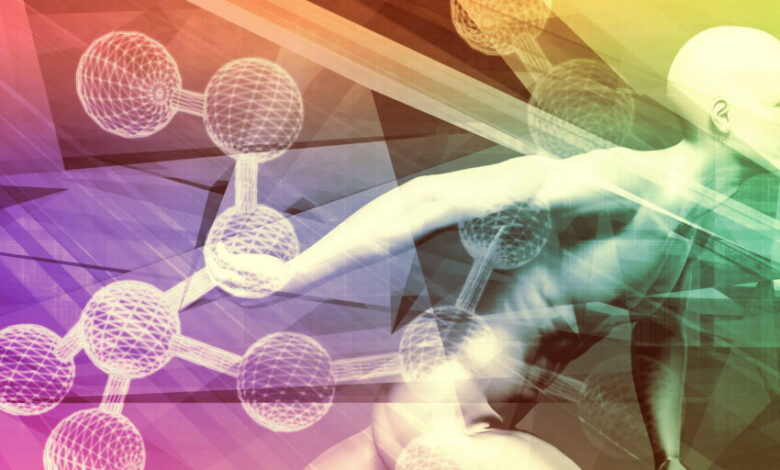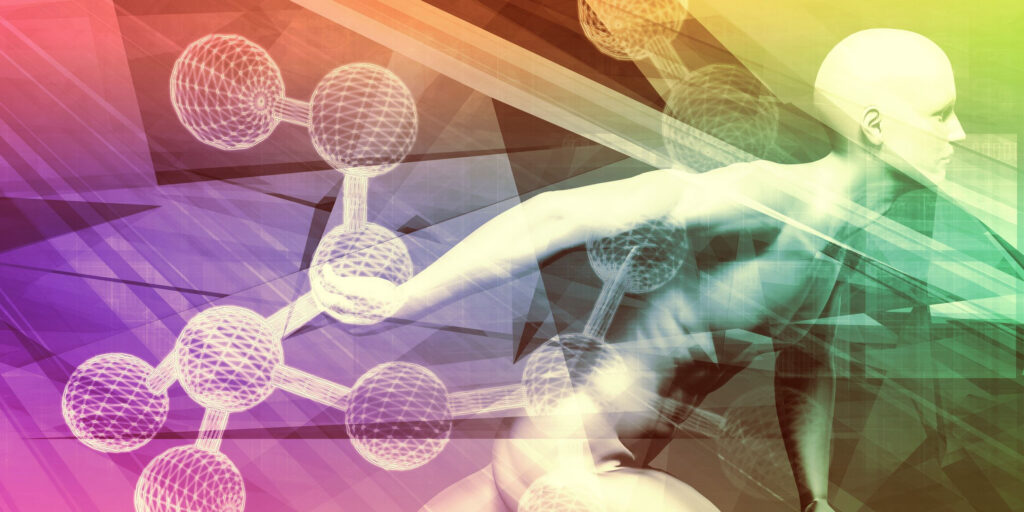
The Connection Between Hormones and Training Performance
The connection between hormones and training performance is a fascinating one, revealing how our bodies respond to exercise and how we can optimize our training for better results. It’s not just about lifting weights or running miles; it’s about understanding the intricate interplay of hormones that influence muscle growth, recovery, and overall athletic potential.
From the testosterone that fuels muscle growth to the cortisol that dictates our stress response, understanding the role of hormones in training is essential for maximizing our fitness journey. We’ll delve into the key players, explore how to optimize their response through training and nutrition, and discover the secrets to unlocking our full athletic potential.
Hormones Influencing Training Performance
Hormones are powerful chemical messengers that play a crucial role in regulating various bodily functions, including muscle growth, recovery, and overall performance. Understanding the intricate interplay between hormones and training can significantly enhance our understanding of how our bodies adapt to exercise and optimize our training strategies.
The Role of Testosterone in Muscle Growth and Strength Gains
Testosterone, a primary male sex hormone, is essential for muscle growth and strength gains. It stimulates protein synthesis, which is the process of building new muscle tissue. Testosterone also increases muscle fiber size and promotes the development of muscle mass.
Studies have shown that individuals with higher testosterone levels tend to exhibit greater muscle growth and strength gains in response to resistance training.
The Impact of Cortisol on Recovery and Stress Response
Cortisol, often referred to as the “stress hormone,” plays a vital role in the body’s stress response. While it is essential for maintaining energy levels and coping with stressful situations, chronically elevated cortisol levels can have negative effects on training performance.
High cortisol levels can hinder muscle growth, suppress the immune system, and increase the risk of injury. Managing stress levels and ensuring adequate recovery time are crucial for maintaining healthy cortisol levels.
Hormones play a crucial role in athletic performance, influencing everything from muscle growth to energy levels. A balanced diet is essential for maintaining healthy hormone levels, and this is where High Fiber Meals for Weight Loss: A Guide to Feeling Full and Slim comes in.
Fiber-rich meals can help regulate blood sugar levels, promoting stable energy and reducing those pesky crashes that can derail your training.
Growth Hormone and its Contribution to Muscle Repair and Tissue Regeneration
Growth hormone (GH) is a potent anabolic hormone that promotes muscle repair and tissue regeneration. It stimulates protein synthesis and increases the rate of muscle growth. GH also plays a crucial role in bone growth and repair. Studies have shown that GH levels increase significantly during and after exercise, particularly during high-intensity training.
The Role of Insulin-like Growth Factor (IGF-1) in Promoting Muscle Protein Synthesis
Insulin-like growth factor (IGF-1) is a powerful hormone that is produced primarily in the liver and plays a critical role in promoting muscle protein synthesis. It is stimulated by growth hormone and enhances the rate of muscle growth and repair.
Understanding how hormones influence training performance is key to unlocking your fitness potential. Factors like cortisol, testosterone, and growth hormone play a crucial role, and optimizing their levels can significantly impact your results. To help you achieve this, check out 10 Simple Changes That Lead to Weight Loss , as making healthy lifestyle choices can positively influence your hormonal balance and enhance your training outcomes.
IGF-1 also contributes to bone growth and development.
You know how important those feel-good hormones are for crushing your workouts, right? Well, keeping those levels balanced is key, and that’s where a healthy diet comes in. During the holidays, it’s easy to get caught up in all the delicious treats, but don’t forget to fuel your body with nourishing foods.
Check out these Plant-Based Holiday Recipes & for some festive inspiration. A balanced diet can help you maintain optimal hormone levels, so you can keep pushing those limits and seeing amazing results in your training!
Comparison of Hormone Effects on Training Adaptations
Different hormones exert unique effects on training adaptations, contributing to the overall response to exercise. Testosterone and GH promote muscle growth and strength gains, while cortisol influences recovery and stress response. IGF-1, stimulated by GH, enhances muscle protein synthesis. The interplay of these hormones is complex and varies depending on the type, intensity, and duration of training.
Individual Variability in Hormonal Response: The Connection Between Hormones And Training Performance

The human body is incredibly complex, and hormonal responses to exercise are no exception. While we’ve discussed the general effects of training on various hormones, it’s crucial to understand that individual factors play a significant role in determining how these hormones behave.
This variability stems from a combination of genetics, age, training experience, and even gender, making personalized training and nutrition strategies essential for optimizing performance.
Influence of Genetics and Age
Genetic predisposition plays a significant role in determining an individual’s hormonal profile. For instance, some individuals may have a genetically higher testosterone production capacity, potentially leading to greater muscle growth and strength gains. Similarly, genetic factors can influence the sensitivity of receptors to various hormones, affecting their overall impact on the body.Age also significantly influences hormonal response.
As we age, the production of key hormones like testosterone and growth hormone naturally declines. This decline can impact muscle mass, bone density, and recovery capacity. Understanding these age-related changes is essential for tailoring training programs and nutritional strategies to maximize performance and minimize the risk of injury.
Impact of Training Experience and Gender, The connection between hormones and training performance
Training experience profoundly impacts hormonal response. Beginners often experience a more dramatic increase in testosterone and growth hormone levels following exercise compared to experienced athletes. This phenomenon is attributed to the novel stimulus and adaptation process the body undergoes. As training progresses, the body adapts to the demands, and the magnitude of hormonal response may plateau or even decrease.Gender also plays a crucial role in hormonal response to exercise.
Women generally have lower testosterone levels compared to men, which can impact muscle growth and strength gains. However, women often exhibit a greater sensitivity to growth hormone, which can contribute to improved recovery and fat loss. Understanding these gender-specific hormonal differences is essential for developing effective training programs and nutritional strategies for both men and women.
Personalized Training and Nutrition
The individual variability in hormonal response highlights the importance of personalized training and nutrition strategies. A one-size-fits-all approach is unlikely to be effective for everyone. By considering individual factors like genetics, age, training experience, and gender, fitness professionals can tailor training programs and nutritional plans to optimize performance and minimize the risk of overtraining or injury.For example, a young, genetically predisposed individual with high testosterone levels might benefit from a high-volume, high-intensity training program focused on muscle hypertrophy.
In contrast, an older individual with lower testosterone levels might require a lower-intensity program focused on maintaining muscle mass and bone density. Similarly, nutritional strategies should be tailored to individual needs, considering factors like hormonal imbalances, dietary preferences, and training goals.
Epilogue
By understanding the connection between hormones and training performance, we gain a powerful tool for maximizing our fitness journey. We can design training programs that stimulate the right hormones, fuel our bodies with the right nutrients, and manage stress effectively.
This knowledge empowers us to unlock our true athletic potential and achieve our fitness goals.





